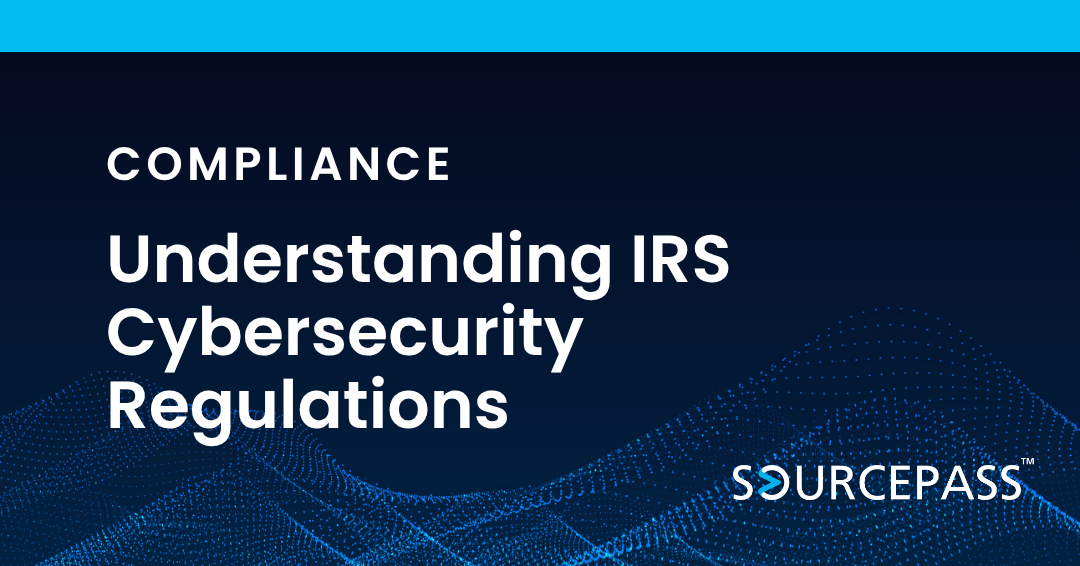Understanding IRS Cybersecurity Regulations
Jun 02, 2025 Admin Industry - Financial Sector & Private Equity | Compliance Regulations | Security & Compliance 4 min read



Protecting sensitive financial data is more crucial than ever. The Internal Revenue Service (IRS) has recognized this need and, as a result, has implemented stringent cybersecurity regulations designed to safeguard taxpayer information and ensure compliance within the tax ecosystem. These regulations impact a wide range of businesses, especially those in the financial services, accounting, and IT sectors. For businesses involved in handling taxpayer data, understanding and adhering to IRS cybersecurity regulations is no longer optional—it’s a requirement.
In this article, we’ll explore the essentials of IRS cybersecurity regulations, the industries affected, compliance requirements and components, and how these regulations specifically relate to IT and cybersecurity.
What Are IRS Cybersecurity Regulations?
The IRS Cybersecurity regulations, established under the guidance of the IRS and other regulatory agencies like the Department of Treasury, are designed to protect taxpayers’ personal, financial, and confidential data from cyber threats. These regulations fall under the broader framework of safeguarding sensitive taxpayer information, which is necessary for maintaining public trust in the U.S. tax system.
One of the most well-known IRS regulations in this area is the "Security 5060" set of requirements. These guidelines are primarily enforced through the IRS Publication 4557, which outlines the expectations for tax professionals and companies handling taxpayer data.
These regulations are intended to ensure that organizations establish a robust cybersecurity program, provide continuous monitoring of threats, implement security controls, and maintain a proactive stance on preventing data breaches and cyber-attacks.
Affected Industries
Several industries are directly impacted by IRS cybersecurity regulations, including:
Tax Professionals and Tax-Preparation Services:
Firms or individual practitioners who prepare tax returns, file taxes electronically, or provide tax-related services must comply with these regulations. This includes accountants, tax consultants, and other financial professionals.
Financial Institutions:
Banks, investment firms, and other financial services providers that process or store taxpayer information are required to implement the necessary cybersecurity measures to protect that data.
Payroll and Accounting Firms:
Any business offering payroll services or accounting services that manage tax-related data is under the purview of IRS cybersecurity rules. This includes outsourcing firms that handle sensitive information for clients.
Software Providers:
Companies that develop tax preparation software or provide e-filing services to tax professionals and individuals must adhere to these cybersecurity standards to ensure the protection of data during submission and processing.
Government Agencies:
Public sector organizations, including local, state, and federal agencies that handle or store taxpayer data, must also comply with these cybersecurity guidelines to protect their systems and taxpayer information.
Compliance Requirements and Components
To meet IRS cybersecurity standards, businesses handling taxpayer information must establish comprehensive data protection strategies that include the following compliance components:
1. Data Protection and Encryption
- Organizations must use robust encryption protocols to protect sensitive taxpayer data both during transmission and when stored. This means encrypting data on both servers and devices, ensuring that unauthorized individuals cannot access or read it.
2. Access Control and Authentication
- Ensuring that only authorized personnel have access to taxpayer data is a cornerstone of IRS cybersecurity regulations. This includes implementing strict access control policies, using multi-factor authentication (MFA), and limiting access based on job responsibilities.
3. Incident Response Plans
- In case of a security breach, businesses must have a clear, documented incident response plan in place. This plan should include procedures for detecting, responding to, and recovering from cybersecurity incidents such as data breaches, ransomware attacks, or phishing scams.
4. Regular Risk Assessments
- Regular assessments of cybersecurity risks, including vulnerability scans, penetration testing, and audits, are required under IRS regulations. These assessments help businesses identify potential weaknesses in their systems and allow them to mitigate risks before they are exploited by cybercriminals.
5. Employee Training
- Employees handling sensitive taxpayer data must undergo regular training on security best practices. This includes recognizing phishing attempts, handling data securely, and understanding the importance of cybersecurity in the workplace.
6. Cybersecurity Policies and Procedures
- Businesses must develop and implement clear cybersecurity policies and procedures that outline security expectations, data handling protocols, and steps to take in the event of a cyber incident. This should include measures for software updates, system patching, and system maintenance.
7. Third-Party Risk Management
- For businesses that rely on third-party vendors to handle or process taxpayer data, cybersecurity regulations require that these vendors also comply with IRS standards. Contracts should include clauses that ensure third parties implement adequate cybersecurity measures to protect the data they handle.
8. Data Retention and Destruction
- IRS regulations also require that businesses properly manage the retention and destruction of taxpayer data. Data should only be kept as long as necessary for tax purposes and must be securely destroyed once no longer needed, using methods like shredding physical documents or securely wiping digital devices.
9. Cybersecurity Risk Mitigation
- Businesses are required to proactively mitigate cybersecurity risks through the use of firewalls, anti-virus software, intrusion detection systems (IDS), and other security technologies. These tools help detect and block malicious activity before it can affect the business or its clients.
How IT and Cybersecurity Relate to IRS Cybersecurity Regulations
The role of IT and cybersecurity is central to ensuring compliance with IRS regulations. Let’s explore how IT systems and cybersecurity practices play a vital role:
IT Systems and Infrastructure
- Businesses need to design their IT infrastructure to support secure data storage, processing, and transmission. This includes deploying firewalls, intrusion detection systems (IDS), and secure servers to prevent unauthorized access. Regular patching of systems and software updates is also crucial to addressing known vulnerabilities.
Data Encryption and Secure Transmission
- Encryption of sensitive data—such as social security numbers, tax returns, and financial records—is critical. IRS regulations require encryption for both stored data and data in transit, ensuring that any sensitive information transmitted over the internet is protected from unauthorized access.
Continuous Monitoring and Auditing
- To comply with IRS cybersecurity regulations, businesses must implement continuous monitoring and auditing tools to detect and respond to cyber threats in real-time. This includes tracking and analyzing network activity, conducting security audits, and ensuring that all cybersecurity measures are properly enforced.
Disaster Recovery and Business Continuity
- IT departments must work with other business units to create robust disaster recovery and business continuity plans. If a breach or cyberattack occurs, businesses must have the systems in place to recover quickly, minimize data loss, and protect customer trust.
Compliance Software Tools
- Many organizations utilize compliance management software tools that help streamline the process of meeting IRS cybersecurity requirements. These tools assist with tracking compliance tasks, performing vulnerability assessments, and automating security reporting.
Conclusion
IRS cybersecurity regulations are an essential component of protecting taxpayer information from cyber threats, and businesses must take these regulations seriously. Compliance with these regulations is not only a legal requirement but a necessary step to maintain the trust of clients and the security of sensitive data.
For businesses in industries like tax services, financial institutions, and IT, implementing a comprehensive cybersecurity strategy is key to staying ahead of evolving threats. By understanding the core components of IRS cybersecurity regulations and integrating strong IT and cybersecurity practices, businesses can ensure they meet compliance requirements and secure the trust of both regulators and clients.
Subscribe To
Sourcepass Insights
Sourcepass Insights
Stay in the loop and never miss out on the latest updates by subscribing to our newsletter today!


